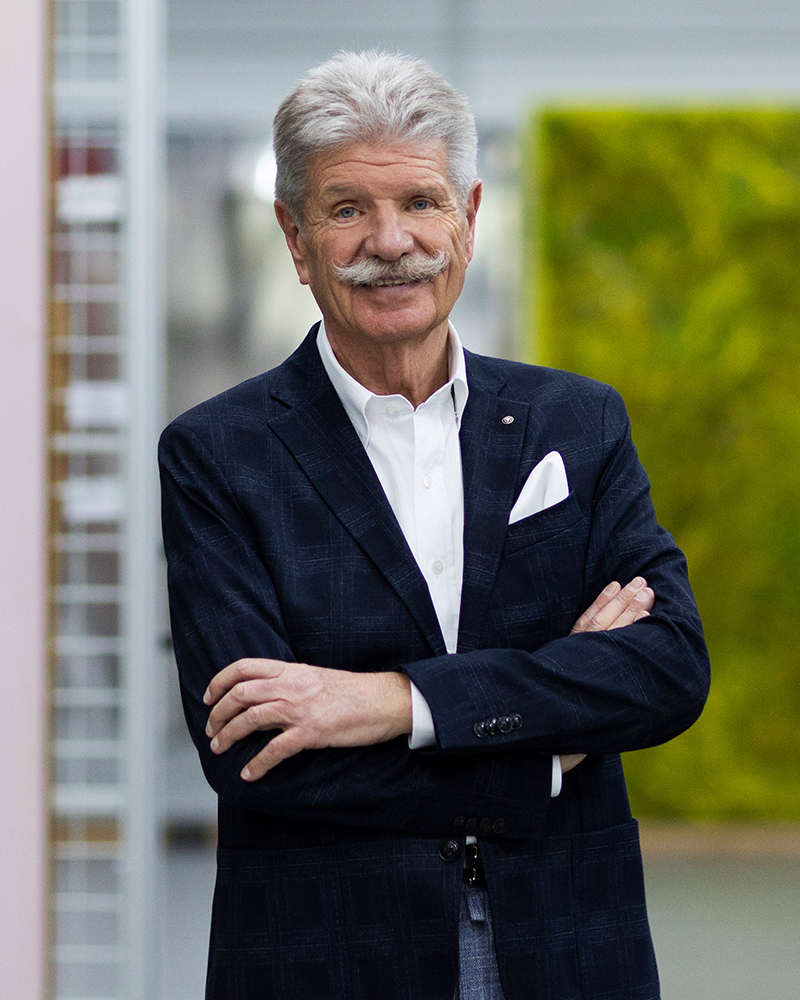
– Reinhard Ernst
Parallel to building up his companies for high-precision drive technology in the 1980s, the entrepreneur Reinhard Ernst collected abstract art. He was born in Westerwald in 1945 and grew up in the Taunus region of Germany and had no great relationship to art during his childhood. It was only when he began travelling around the world on business that he developed an interest in painting and sculpture.
Over the years, Reinhard Ernst created a collection of the highest calibre which continues to grow. The focus is on American, European and Japanese painting – especially Abstract Expressionism, Informel and the Gutai group of artists. More contemporary works continue to be added to the collection illustrating the continuing significance of abstraction to the present day.
Reinhard Ernst’s enthusiasm for the work he has gathered shows no sign of abating. The artist Helen Frankenthaler is a particular favourite of his:
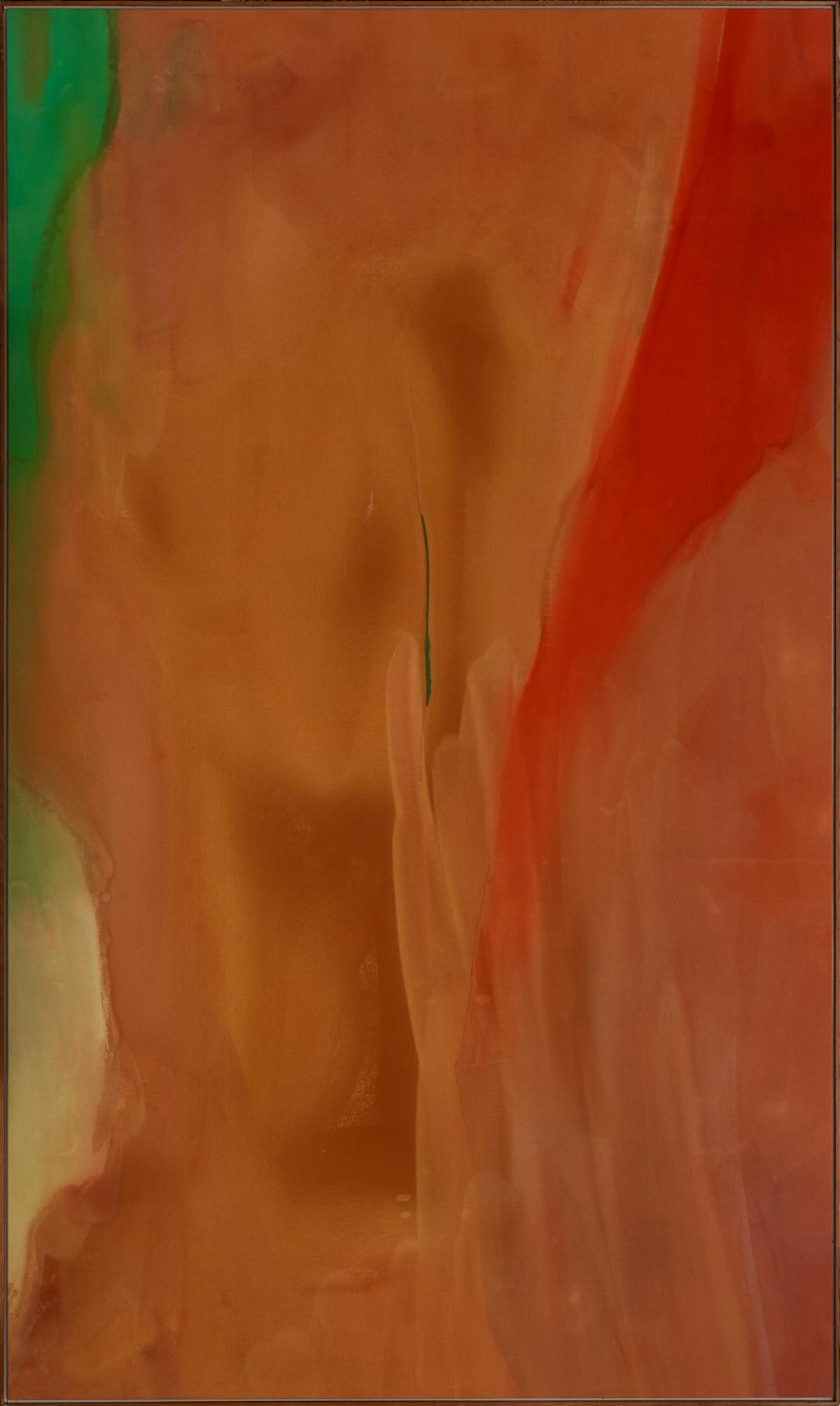
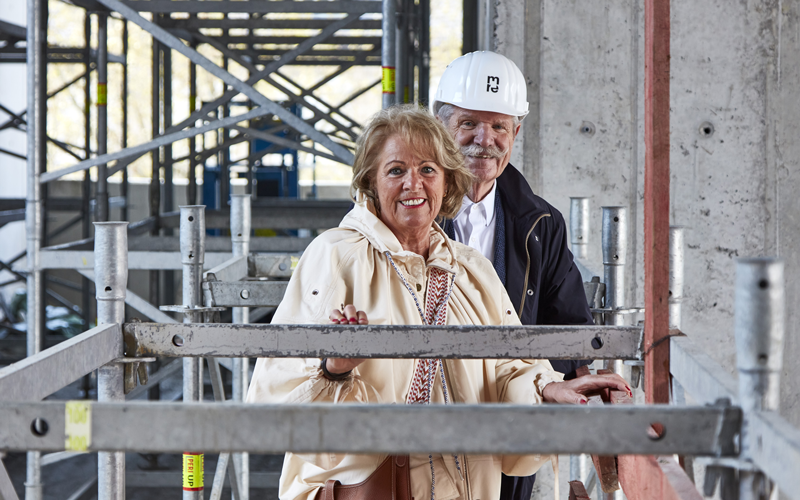
The Wiesbaden-based businessman has wanted to open up his collection to the public for some time.
This led to the idea of a museum for abstract art which would present different aspects of the Reinhard Ernst Collection as well as hosting special exhibitions. This vision eventually became a concrete plan: in 2016, the Reinhard & Sonja Ernst Foundation proposed to the city of Wiesbaden that it build and operate a museum at its own expense. After a public consultation process, this proposal was accepted by the magistrate and the city council with unanimous cross-party support. The design committee, which advises the city as an independent body on development issues, also unreservedly approved the museum architect’s proposal.
The property at Wilhelmstraße 1 was then made available to the Reinhard & Sonja Ernst Foundation with a 99-year leasehold agreement.
For this period, the foundation is the sole sponsor of the museum and secures the ongoing exhibition operations.
The museum advisory council proposed by Reinhard Ernst met for the first time in the summer of 2020. Since then, Prof. Dr. Christoph Zuschlag (Deputy Chairman), Dr. Gerhard Finckh, Dr. Alexander Klar and Bastienne Leuthe have been advising the museum.
The museum is an internationally attractive address for abstract art, an important central location featuring a restaurant, a digital colour laboratory for children, a museum shop and fully equipped events spaces. The museum is a significant enhancement to the state capital of Wiesbaden. Here we find one passionate collector’s vision transformed into a cultural centre open to one and all.
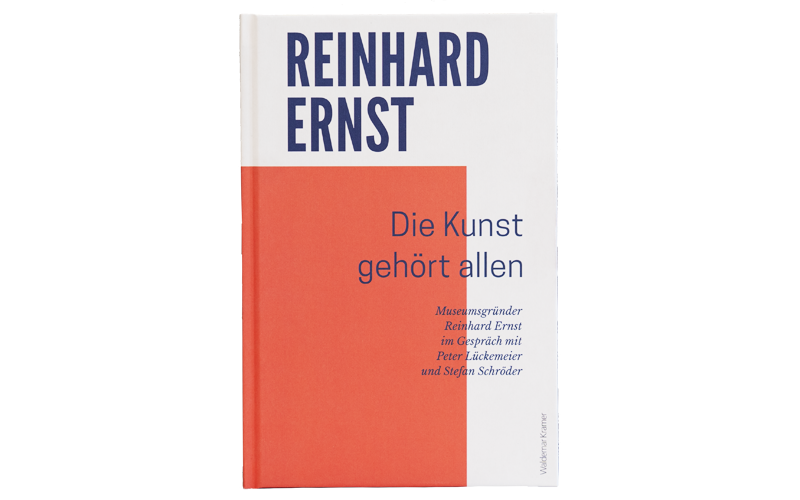
Further information about Reinhard Ernst, his career and his passion for abstract art can be found in the fascinating book Die Kunst gehört allen, Kramer, 2024. Available in the shop, online and offline.
The city council recommended in its meeting on November 12, 2024, that the couple Sonja and Reinhard Ernst be granted honourary citizenship. The city parliament approved the recommendation on November 21, 2024.
“We are very honoured by this recognition,” said Reinhard and Sonja Ernst. The couple has lived in Wiesbaden for many years, and Sonja Ernst is a native of the city. “We feel closely connected to Wiesbaden. Sharing with others is one of our guiding principles in life. All the projects we implement through our foundation are deeply personal, which is why their success is especially important to us. With the mre, we aim to create a space for all who are passionate about art, architecture, and design. Above all, we are dedicated to inspiring and nurturing creativity in children and young people. In the first five months, more than 82,000 visitors from Wiesbaden—including children, students, and adults—as well as guests from around the country and abroad, have visited the museum. We are thrilled to see how well this initiative has been received,” the Ernsts said.
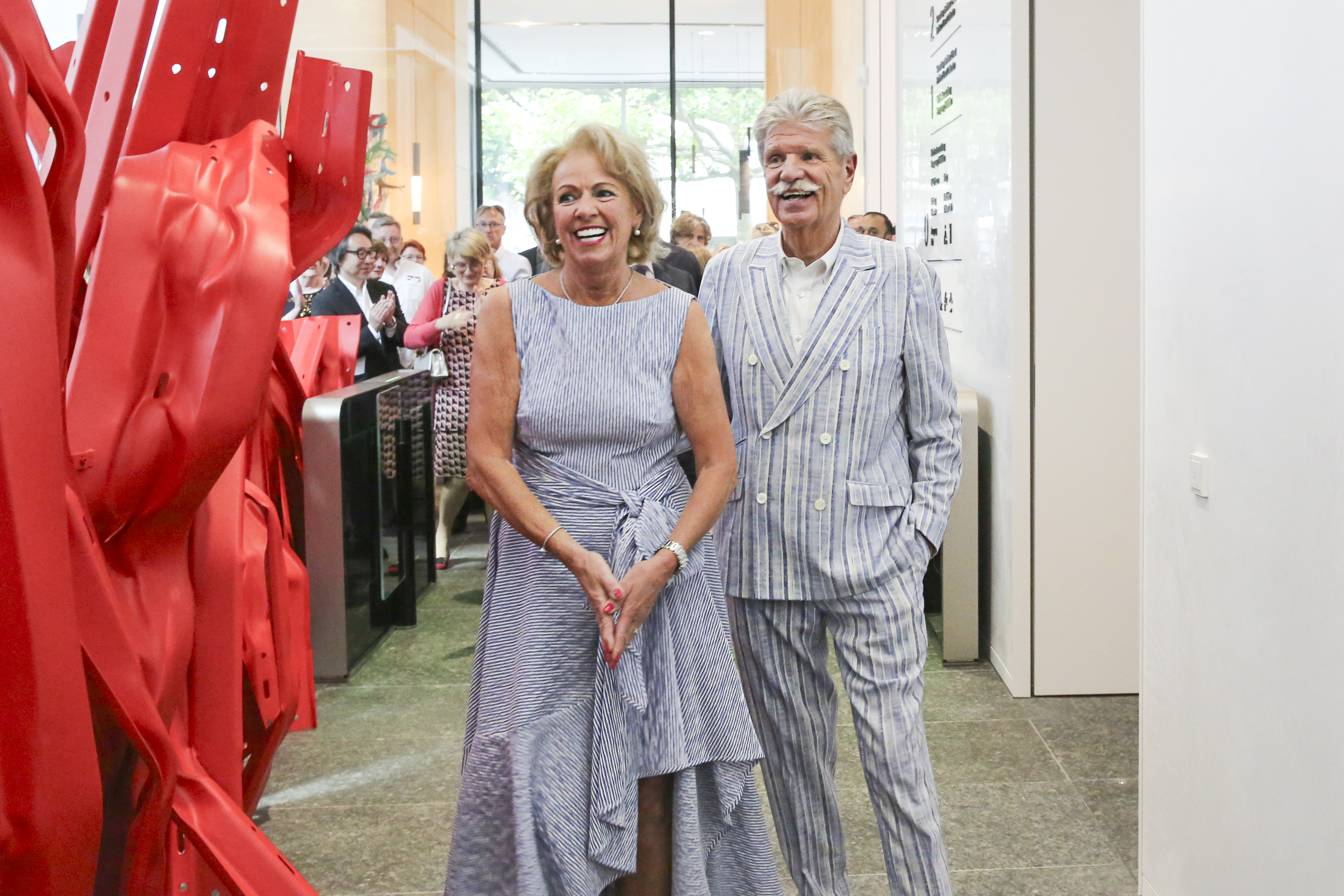
You are currently viewing a placeholder content from YouTube. To access the actual content, click the button below. Please note that doing so will share data with third-party providers.
Have you ever wondered how much the red Ferrari in Karl-Martin Hartmann’s installation cost? Find out through the video clip!